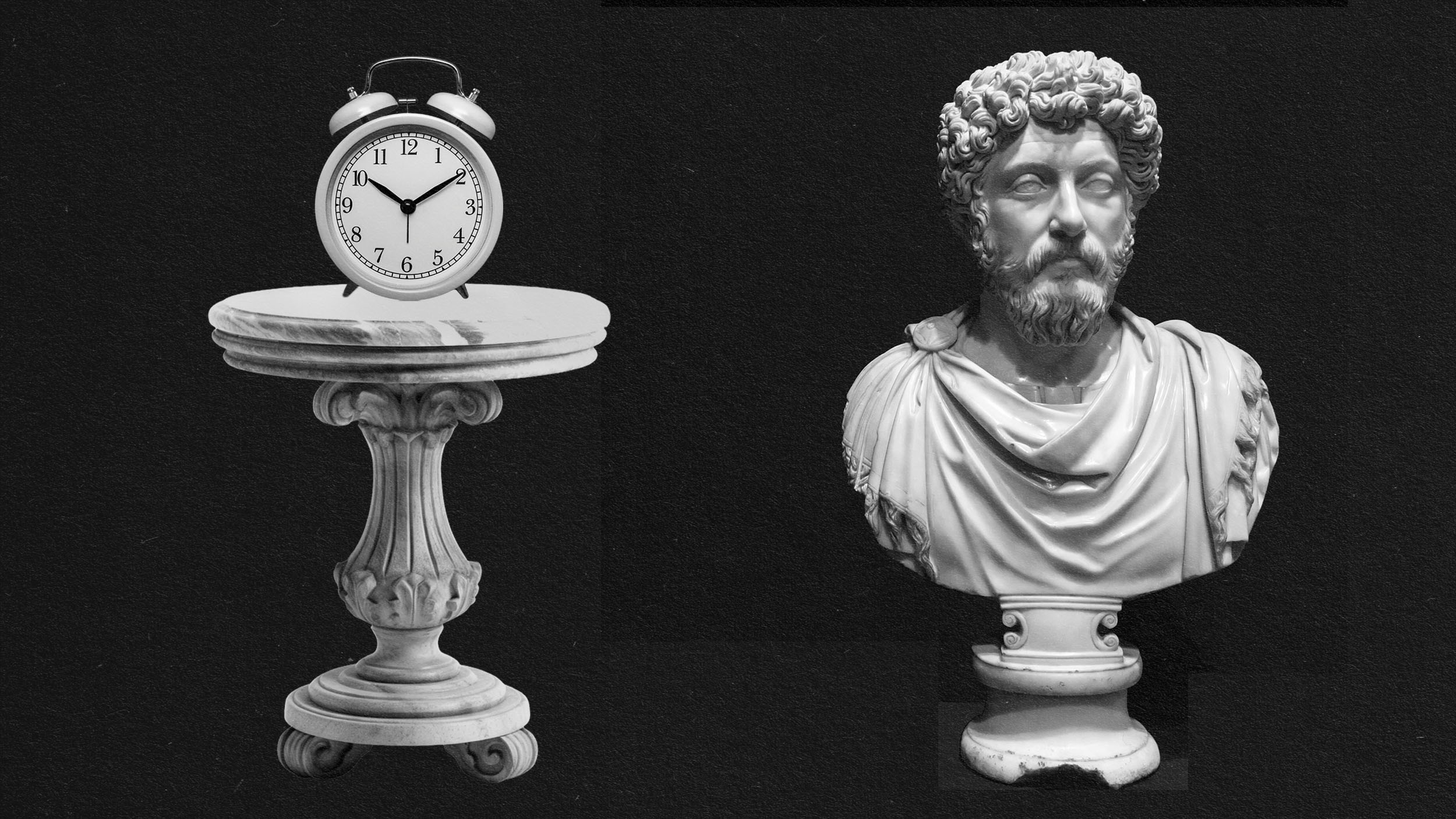How to use “Solomon’s paradox” to give yourself good life advice

- King Solomon is synonymous with wisdom and great advice. But in his personal affairs, he was incredibly shortsighted. His story has given rise to the concept of Solomon’s paradox.
- Studies have proven that we are much better at giving rational and useful advice to other people rather than ourselves — we’re much more expert when we’re distanced from a situation.
- Here we offer three tricks to harness the wisdom of Solomon’s paradox.
When you’re reading a book or watching a TV show, it’s often easy to see why things are going wrong between the characters.
“Why don’t they just be honest with each other?” we shout at the screen as the protagonists bicker (again) because of an entirely avoidable misunderstanding.
“She should leave him,” we say, as a character puts up with an emotionally abusive boyfriend.
“He should just tell his boss to screw himself,” we insist when we read about someone struggling under the daily grind of a soul-sucking job.
The fact is that we’re experts when it comes to giving advice to other people. Most of us, on some level, know what’s good for people. We know what a good life should look like. You probably already know what food you should eat and what habits you should be developing. And yet we talk out of both sides of our mouth. We tell friends to do things we never do ourselves. We criticize TV characters for doing things we did this morning.
Why? It has to do with a curious blinkering we have when it comes to self-reflection. If you want to beat it, perhaps it’s time to consider Solomon’s Paradox. Knowing its secrets might help you.
Wise King Solomon
King Solomon of ancient Israel was known the world over for his wisdom and fair justice. His kingdom was the wealthiest and most peaceful that had ever been known. One day, two women appeared presenting Solomon with a problem: They both claimed to be the mother of an infant.
Since no ancient king holds court without a weapon, Solomon drew out his sword and said, “I shall cut this child in two, so you both shall have your fair share.” Aghast, the true mother fell to her knees, begging the child to be spared and given to the other, imposter woman. Solomon could see who the true mother was and he gave her the infant.
King Solomon is legendary for his wisdom. His name is synonymous with good kingship. Yet, in his own life, he was notoriously shambolic. His poor parenting gave rise to one of the cruelest tyrants in the Bible, his son, Rehoboam, who turned Judah into a pit of abomination and sin. Solomon had many pagan wives and concubines, with a likely host of illegitimate children. He was profligate and extravagant, and gave little thought to the temperate, sensible life. For all his sagacity when it came to others’ affairs, Solomon was woefully myopic when it came to his own.
Solomon’s paradox
In 2014, a paper from psychologists Igor Grossman and Ethan Kross introduced the idea of Solomon’s paradox. Their research revealed two things. One was that people “display wiser reasoning… about another person’s problems compared with their own.” In other words, there’s a widespread social cognitive bias that means we are much better at dealing with other people’s lives and problems than our own. Second, Grossman and Kross noted that when we try to eliminate self-immersion — in other words, when we try to distance ourselves from our own problems — we somehow are much better at making sensible decisions.
In all the studies that have gone on to prove this (and it has been proven over and over again), we find in the literature discussion of two different types of wisdom. On the one hand, we have general wisdom, which is said to be interpersonal — between yourself and someone external to you. On the other hand, we have personal wisdom, which is intrapersonal — between yourself and your own affairs.
There’s an interesting philosophical and scientific debate to be had about the relationship between the two. We clearly have cases of people who are wise in either type of wisdom. King Solomon had general wisdom, for instance. We also know of people who are smart and sensible but awful at giving advice. But what factors connect the two?
The distinction between general and person wisdom ought to serve as a useful reminder against ad hominem attacks (where we criticize someone’s character rather than their ideas). After all, someone like King Solomon can be very wise in certain things, but imbecilic in their personal affairs. “Do as I say, not as I do” is a logically valid position. In fact, according to psychology, what we say is often better than what we do.
Ways to self-distance
Solomon’s paradox teaches us, then, that if we want to give ourselves good advice, we ought to take a step back. If we want to make positive steps in improving who we are, we need to treat our own lives like we would characters in a book. Here are three ways we can do just that:
Talk to yourself
You’ll probably feel like an idiot, at first, so you’ll want to do this alone and in a safe space. Place an empty chair in front of you or just look at yourself in the mirror…and talk to yourself. Imagine you are a therapist and the person in the mirror is your client. Imagine you are a critic, and the empty chair is a character in a movie. Ask two questions, to start: “Why are you doing that?” and “What can you do to help?”
Journaling
For those who have a low tolerance for cringe, and can’t do self-talk like this, try writing things down. Find a time in the day that’s good for you and write down what’s happened in the day or week. Then take a step back for a good while. Read what you’ve written as if you’re reading a book. What advice would you give to yourself from what you’ve read. Obviously, this won’t work for instant problems — this one needs time — but re-reading journal entries is often as important as writing them down.
Identify with someone else
Ask someone who knows you well — a close relative or a best friend — who they think you’re most like. It could be a TV character, an historical figure, or even another mutual connection. Then try to learn as much as you can about that person and see what advice you’d give them. Look to see what went well in their lives and what went wrong. Obviously, no two people are entirely alike, but this kind of third-person identification is often a useful distancing technique.
So, what kind of wisdom do you have? Are you personally very sensible but give awful advice, or are you more like King Solomon — an expert when it comes to others, but a bumbling amateur when it comes to yourself?
Jonny Thomson teaches philosophy in Oxford. He runs a popular account called Mini Philosophy and his first book is Mini Philosophy: A Small Book of Big Ideas.





